A picture of Spanish animation

Irene Jiménez22-11-2022
©C21Media
The Spanish animation industry is gaining prominence thanks to an increase in production and attractive tax incentives. But what does the future hold for the business?
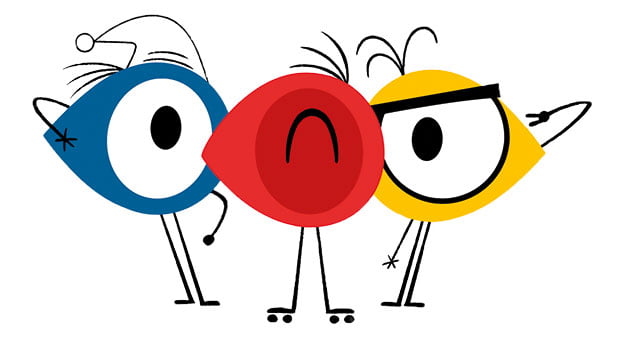
Pubcaster À Punt’s Mironins is based on the work of Spanish painter Joan Miró
Pocoyo is turning 20 in 2022. The Spanish preschool hit celebrated its best year ever in 2021 – available on channels and platforms in more than 150 countries and with a fifth season in production, it beat its own viewership record on YouTube and spawned successful apps and video games and new consumer products. A true 360-degree property.
But the Zinkia property is not the only animated show produced in Spain. The dragons of Game of Thrones, rendered by VFX studio El Ranchito, Netflix original feature Klaus, directed by Sergio Pablos, and Oscar-winning short film The Windshield Wiper, by Alberto Mielgo, are among the best-known ambassadors of Spanish animation.
The local industry has launched more than 70 animated TV series in the past four years, according to Spanish trade and investment firm ICEX’s guide Who is Who: Animation from Spain. In 2022 alone, six animated series are being released and 26 are at different production stages.
So it seems the Spanish animation industry is going through a boom. “Nowadays there are no big groups working in animation in Spain, but many medium and small independent prodcos and studios, which are very creative, capable to adapt to new business models and have international potential. I prefer to speak about opportunities more than a boom,” says Yago Fandiño, head of kids’ content at pubcaster RTVE and director of its dedicated children’s channel, Clan.
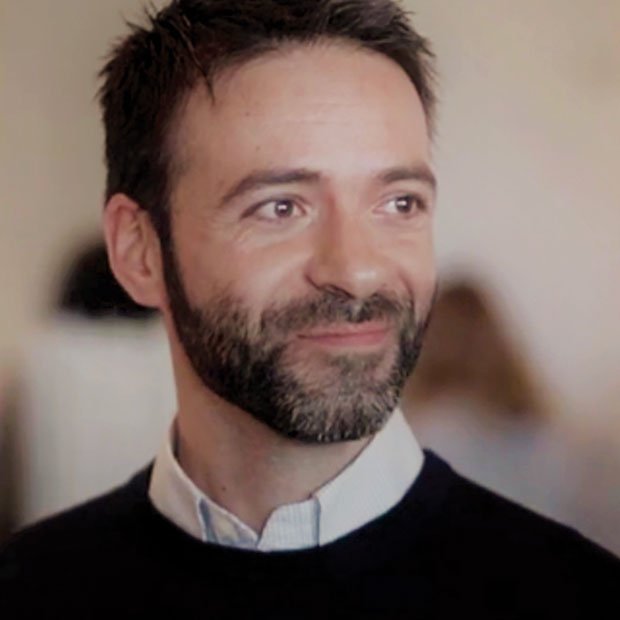
Iván Agenjo
According to Who is Who: Animation from Spain, there are 260 producers and distributors shaping the industry. The main animation hubs in Spain these days are the capital, Madrid, with the highest volume of prodcos in the country; Barcelona, thanks to the constant support of regional pubcaster TVC; Valencia, due to refreshed public support; Navarre, thanks to recent incentives for animation companies; and the Canary Islands, which offer one of the most competitive tax systems for audiovisual production in the world.
“Film production is mostly located in Madrid and Navarre, while Barcelona and Valencia are more specialised in TV series. The Canary Islands’ studios are mainly dedicated to third-party services and developing in parallel their own IPs,” says Nico Matji, producer of film saga Tadeo Jones and president of DIBOOS, the federation of animation and VFX producers.
While the production of animated feature films has achieved a specific boost thanks to national grants, producers are still negotiating with the ICAA – the national body in charge of policies supporting the film industry and audiovisual production in Spain – for a new and specific line of public funding for animated TV series.
“I am confident we’ll have good news soon. All the producers, institutions and broadcasters are more and more coordinated every day,” says Matji.
“We’ve made some progress lately, but there is still a lot to do in terms of financing. It’s been years since Spanish producers started spreading the specific needs of the animation industry among national and regional institutions. Now we can apply for public subsidies in Catalonia, Valencia and Madrid,” says Iván Agenjo, co-founder of Barcelona-based Peekaboo Animation (I, Elvis Riboldi, Mironins), president of ProAnimats and VP of DIBOOS.
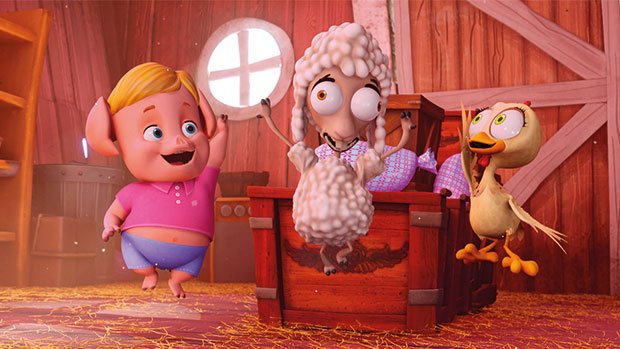
Spanish-Argentinian coproduced musical comedy Turu & the Wackies
“I feel optimistic, but we can’t depend on public funding that much, despite attractive tax incentives or new grant programmes. Public funding is limited to 50% of the overall budget, so the participation of private broadcasters, platforms or investors is essential.”
The lack of investment from private media groups and investors is still the main worry and obstacle for Spanish animation producers. Commercial group Atresmedia has a kids’ slot on its young-skewing channel Neox, usually filled with titles distributed by sister company DeAPlaneta Entertainment.
Mediaset España maintains a joint venture with Warner Bros Discovery for free-to-air channel Boing, whose programming is based on Cartoon Network’s properties and original productions focused on family gameshows.
Since 2008, Disney Channel airs on digital terrestrial television but does not invest in local animation shows.
“In the Spanish market, pay TV platforms and global streamers are focused on drama series in terms of local and original production. If you want to pitch an animation show to any streamer, you have to talk to their offices in London or LA, which makes things more complicated,” says Peekaboo’s Agenjo. That also limits options for young-adult and adult animation projects.
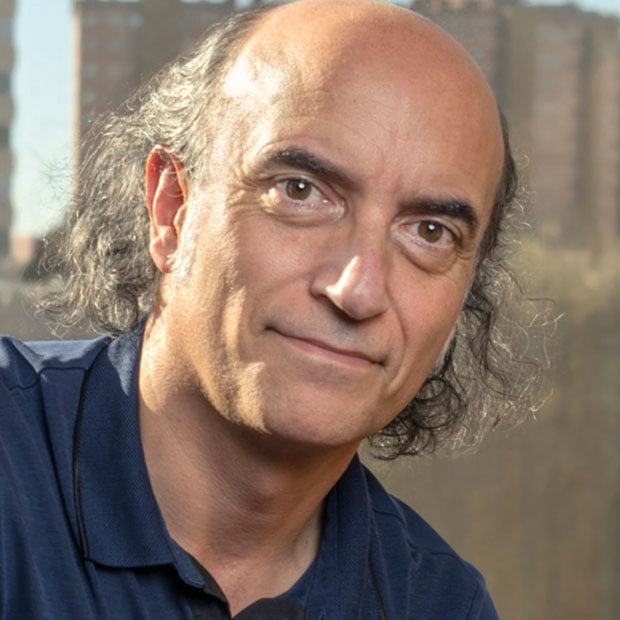
Yago Fandiño
So producers have only one national partner: pubcaster RTVE. “Apart from the mandatory investment in European productions, we decided to participate in coproductions in the early stages of development, so we can take part in the creative process and get some financial return,” says RTVE’s Fandiño.
As a result, the pubcaster will soon launch Petronix Defenders, a production from Mediawan’s ON Kids & Family, with an ambitious licensing strategy.
At the beginning of the 2022/2023 season, Clan is also airing The Happy Farm, coproduced by veteran Barcelona-based studio Motion Pictures and Italy’s Rainbow; Royals Next Door, a Spanish-Belgian-Irish coproduction; musical comedy Turu & the Wackies, coproduced by Spain and Argentina; and Doopie, a show mixing live-action and puppets coproduced in the Netherlands, Belgium and Spain.
The strategy of turning Clan into a more European and less ‘Nickelodeon-ised’ channel is flourishing.
Surprisingly, in its call for animation projects last year, RTVE chose Samuel, the most successful pitch at Cartoon Forum in years. Created by French filmmaker Émilie Tronche, the show targets pre-teens and teens, while Clan’s main audience is preschool and kids.
“We are studying how to get closer to 10- to 12-year-olds,” says Fandiño. “Soon Clan may introduce a transition slot in the evenings to host content from our OTT youth service Playz, so we are scanning the market and Samuel fits.”
In 2022, Clan also commissioned its first live-action original series, The Argonauts, produced by Portocabo (The Avatars, Miracle Tunes).
Another pubcaster in the middle of a rethinking is Televisió de Catalunya (TVC). The whole Catalonian corporation is starting a new era and its kids’ channel Super3 will launch new programming this autumn in the face of falling ratings. The main novelty is a slot targeted at the six-plus audience with anime shows and a daily magazine show fronted by two well-known influencers.
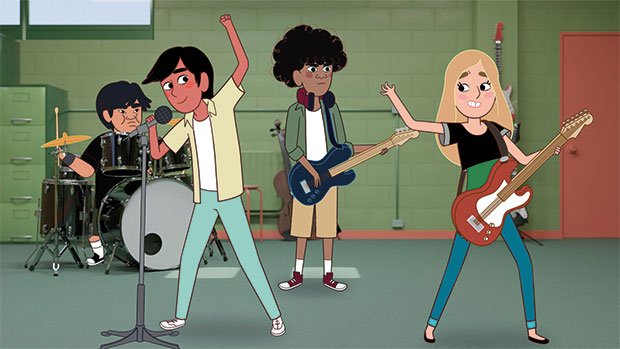
Royals Next Door is coproduced by Spain and Finland’s Pikkukala, Belgium’s Walking the Dog and Ireland’s Ink & Light
This does not mean TVC will invest less in original animated shows – quite the opposite, the kids’ department is trying to increase the budget every year.
The same goes for Valencian pubcaster À Punt. Ernest J Sorrentino, deputy director of content, says: “Due to our tight budget, coproduction is key for us. We are working closely with RTVE and TVC, and also with the regional body in charge of public grants.”
À Punt has invested €3.3m (US$3m) in acquisitions and coproductions of animated shows since its relaunch four years ago. Among its latest shows are Mironins, Croco Doc and Turu & the Wackies. The regional channel has a kids’ slot at the weekends from 07.00 to 11.00 and most of its animated programming can be watched on its VoD service.
With such limited funding opportunities at home, Spanish producers are used to going abroad in a quest for money. “We coproduce a lot with French companies, but they always want to be the majority producer,” says Peekaboo’s Agenjo. “So if you want to be majority producer, you’d better dive into Ireland, Belgium or Italy. The latter seems to be very interested in international coproductions now, as well as Poland. Italy and Poland are similar to Spain in terms of cost of living, so coproductions with them may be more equitable.”
Toy makers are becoming more and more important supporters of Spanish animation studios. For example, Hampa Studio is producing up to seven 3D animation series based on toys, such as Cry Babies and VIP Pets, available on YouTube and on global streaming platforms.
“We started several years ago with these branded content productions for IMC Toys and we expect to continue until 2027,” says Alejandro Cervantes, CEO of the Valencian studio, which has more than 100 employees and an annual turnover of €4m.
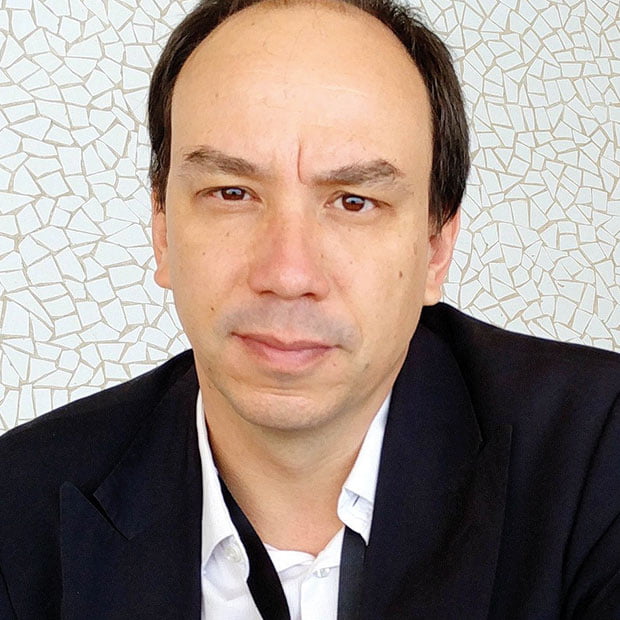
Nico Matji
Financial relief from Creative Europe’s Media programme is also allowing the company to develop its own IP. The slate includes three films and two TV series.
“That is why we are participating in many international markets. In the last year, we’ve attended Pixelatl, Cartoon Forum and San Sebastian Film Festival, and we will be at Mipcom, Kidscreen and MIFA,” says Cervantes.
Also from Valencia, Keytoon Animation Studio is working on a number of properties based on toys. “We are delivering the first season of Trotties for Famosa and already working on season two. We are also just about to start two productions for Giochi Preziosi based on [toy brands] Gormiti and Superthings,” says David Cuevas, co-founder of the studio.
Keytoon will soon increase its staff from 30 to 50. “Original developments are always on the horizon, but honestly, we are very busy with these productions and we have no time for more work,” Cuevas adds.
Around 15 animation studios have set up their offices in the Canary Islands, attracted by their 45-50% tax rebate. Amuse and Fortiche (Arcane) from France and Mondo TV from Italy are among the European companies that have relocated to Gran Canaria and Tenerife, but Spanish firms are also taking advantage of the financing system.
Víctor López, MD of Zinkia, chose the archipelago when developing Pocoyo spin-off series Yanco, Dina & the Dinosaurs. Anima Kitchent Media was also one of the first to move to the Canary Islands, followed by Tomavision, B-Water Studios and 3 Doubles Producciones. Some of them are combining production services with their own IP.
According to data provided by the Tenerife Film Commission, during 2021 up to 10 animated series finalised their production process there, which is a record number. This high volume has caused a need for talent that not even new schools have been able to meet in recent years, compounded by the traditional loss of workforce to international studios.
“The only way to retain talent is to offer exciting projects, because Spanish producers will never be able to compete with the level of salaries [at international studios]. Not even the national studios, such as Skydance Animation Madrid (Luck) or The SPA Studios (Klaus, Ember),” says Peekaboo’s Agenjo.
“As an example, the trailer of Best Friends Forever…Stranded!, one of our new projects, has been possible thanks to many Spanish artists who are working for international studios. They were enthusiastic about the show and its creator, José Balbuena, and they found a way to work for us part-time and remotely.”
The Spanish animation industry is better known for its creativity than for its distribution companies. GoldBee, founded by Christophe Goldberger, and DeAPlaneta Entertainment, which has established itself as a producer as well as a distributor, are two examples of distribution companies in Spain.
That is why foreign distribution companies are also usual allies of Spanish animation prodcos. France’s PGS Entertainment is handling worldwide distribution for Momonsters, a preschool series from independent Spanish firm Big Bang Box that premiered on Clan at the beginning of the pandemic.
Big Bang Box is preparing a third season and a TV movie of Momonsters, as well as a comprehensive licensing strategy, according to co-founder and producer Guillermo Velasco. The show had a €4m budget for its first season and has been sold into Latin America, South Korea and China. Velasco says Europe is the next target, having just confirmed a sale to Italy’s Rai.
Also from France, Dandelooo is distributing Jasmine & Jambo, a musical series created by independent Spanish company Teidees, as well as Royals Next Door, a coproduction between Spain and Finland’s Pikkukala, Belgium’s Walking the Dog and Ireland’s Ink & Light.
After 15 years in Montpellier in France, studio In Efecto moved to Tenerife in 2019 and is providing animation services for Disney’s Tara Duncan. It is also coproducing Bertie’s Brainwaves, an original project by the UK’s Flickerpix, which was pitched at Cartoon Forum in September.
“The Canary Islands’ tax incentives were helpful to make up my mind, but I also feel that Spain is more interesting than France in terms of creativity in the animation market right now,” says In Efecto founder and CEO Raúl Carbó Perea.
Big Bang Box’s Velasco adds: “The Spanish animation industry is reliable and cost-effective, with attractive tax incentives and full of creativity. We are continuously developing new IPs and we are used to thinking internationally.”
So after the strong presence of Banijay in Spain and the expansion into the country of French companies Mediawan, Federation Entertainment and Newen, can we expect a new French conquest in the Spanish animation market? Only time will tell.

















.jpg)




























